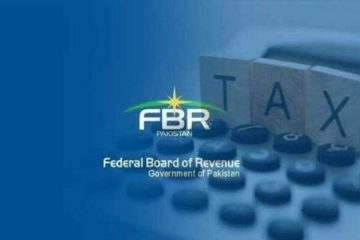The Federation of Pakistan Chambers of Commerce and Industry (FPCCI) is making strong waves in the lead-up to the 2024-25 budget. A key area of contention involves Section 7E of the Income Tax Ordinance, 2001. Introduced in 2022, this section levies a tax on “deemed income” associated with immovable property. The FPCCI vehemently opposes this tax, calling for its complete removal from the upcoming budget.
What is Deemed Income Tax on Property?
Section 7E defines a deemed income as 20% of 5% of the fair market value of an immovable property. In simpler terms, it essentially taxes property owners based on an estimated rental income, even if the property is not rented out. The FPCCI argues that this levy violates several core principles:
- Unconstitutional: The tax falls under Entry 47 of Part 1 of the Fourth Schedule of the Constitution, which restricts the government from taxing non-existent income. The FPCCI argues that since no rental income is generated if the property remains unoccupied, the tax becomes a levy on the property itself, which falls under Entry 50 (exclusively under provincial jurisdiction).
- Exceeds Federal Authority: Post-18th Amendment, the federal government’s power to tax immovable property is limited. The FPCCI maintains that Section 7E oversteps these bounds.
- Discriminatory: The tax only applies to resident taxpayers who file Wealth Statements and Income Tax Returns, excluding others. The FPCCI views this as discriminatory and a violation of Article 25 of the Constitution, which guarantees equality before the law.
- Not Recognized Income: The Income Tax Ordinance defines income as excluding “any sum deemed to be income.” The FPCCI argues that Section 7E contradicts this definition, as the tax is based on an estimated, not actual, income.
- Retroactive Application: Section 7E applies to the tax year 2022 and onwards, meaning it retroactively impacts the tax period from July 1, 2021, to June 30, 2022. The FPCCI views this as an unfair burden on existing taxpayers and a violation of their vested rights.
Impact on Businesses and Taxpayers
The FPCCI highlights several negative consequences of the deemed income tax:
- Increased Tax Burden: Businesses and individuals holding immovable properties face an additional tax liability, even if they are not generating any rental income.
- Discourages Investment: The uncertainty and potential tax implications associated with property ownership could discourage investments in real estate.
- Retroactive Burden: The retroactive application of the tax creates unexpected financial strain on taxpayers.
- Legal Challenges and Uncertainty: With conflicting judgments from High Courts on the legality of Section 7E, businesses face an uncertain tax environment.
FPCCI’s Recommendations
The FPCCI proposes the complete abolishment of Section 7E in the upcoming budget. They advocate for a broader tax base that captures currently untaxed income sources rather than imposing additional burdens on existing taxpayers. Additionally, they urge the government to:
- Ensure Constitutional Compliance: All tax measures should adhere to the division of powers outlined in the Constitution.
- Promote Investment-Friendly Environment: Tax policies should incentivize investments in various sectors, including real estate.
- Eliminate Retroactive Tax Application: Future tax changes should not be applied retroactively.
- Clarity and Consistency: Tax laws should be clear, consistent, and leave minimal room for misinterpretation.
Looking Ahead: Balancing Revenue Needs and Economic Growth
The FPCCI’s stance reflects a broader debate around tax policy in Pakistan. While the government seeks to increase revenue collection, businesses require a stable and predictable tax environment to invest and grow. Striking a balance between these needs is crucial for fostering economic development.
By addressing the concerns raised by the FPCCI regarding Section 7E, the Pakistani government can create a more transparent and equitable tax system. This could lead to increased tax compliance, encourage investment, and ultimately contribute to a more vibrant and sustainable economy.







